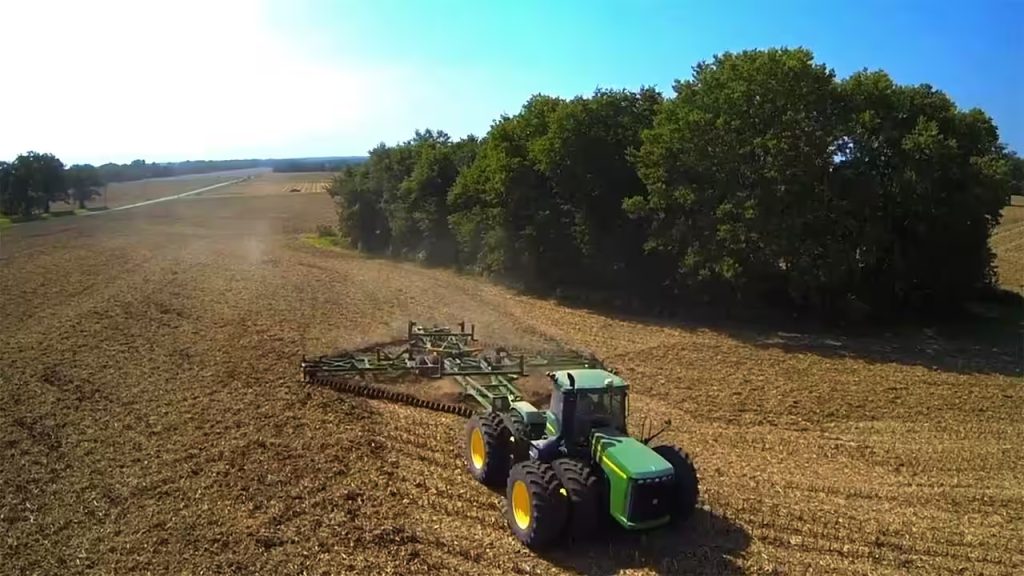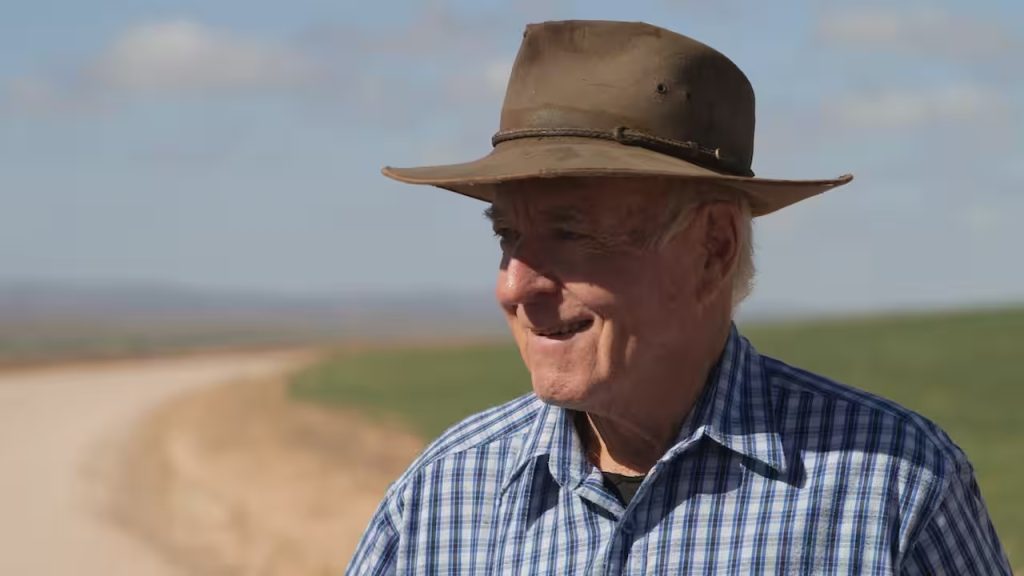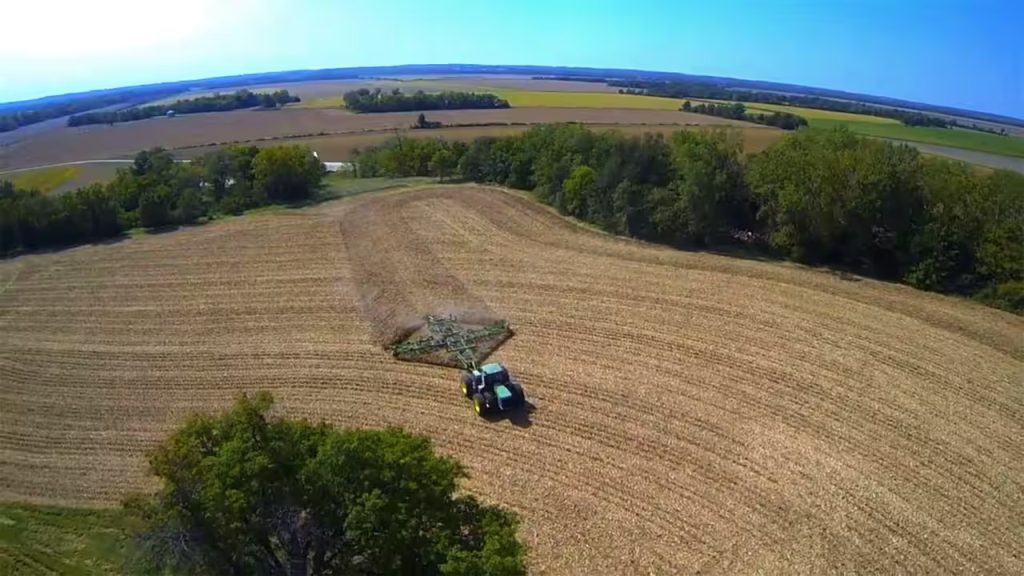Kelly Engineering hopes their tillage device will improve soil conditions for future generations. Source: Kelly Engineering
Kelly Engineering’s ‘diamond harrow’ is a tillage device that reduces the need for chemical pesticides by removing weeds.
Australian farmers have a long history of innovation and adapting equipment to better cultivate the land, often in harsh outback conditions.
For six generations the Kellys have honed their skills in broadacre farming, in recent decades developing new ways to cultivate wheat and barley in South Australia’s Flinders Ranges.
Shane Kelly is Managing Director of his family business, Kelly Engineering, and has grown up producing crops in some of Australia’s toughest farming conditions.
“The Southern Flinders Ranges are ancient, and so we inherit very shallow, very poor low nutrient soils,” he says.
“That’s a great breeding ground for any business if you’ve got a bit of pressure around you”.
That pressure led to an agricultural invention, a tillage device that reuses stubble and also reduces the need for chemical pesticides by removing weeds.

Kelly Engineering’s ‘diamond harrow’ uses steel discs welded to links on a heavy chain to chop stubble in a field. Source: Kelly Engineering
Kelly Engineering’s ‘diamond harrow’ is now in demand across the globe, its steel plates welded to the links of a heavy chain roll across the field, splitting and dragging and chopping the stubble.
“Postwar the tillage practices caused or allowed huge erosion and a massive loss of topsoil,” says Shane.
“So what we’re working with now is four or five centimetres of topsoil over some pretty hostile clays and mineral, so we have to be really focused on our soils and sustainability.”
“We have to be really focused on our soils and sustainability.”
Shane’s dad began working on the device almost two decades ago, gradually modifying the design to make it more effective.
“We kept making the edges wider and the corners blunter until eventually, we made it a full circle,” says Shane.
“Now, it splits the stubble, to let the microbes in and accelerates the process of decomposition”.
Though, Shane and his dad didn’t always see eye-to-eye about the diamond harrow’s potential.
Shane says initially he didn’t believe in its future: “We were a bit at loggerheads initially with his new invention. I didn’t really think it was going to be the best thing for us. But ah, not surprisingly, he turned out to be right, as fathers sometimes can be!”
“We were a bit at loggerheads initially with his new invention. But ah, not surprisingly, he turned out to be right, as fathers sometimes can be!”

Peter Kelly developed the diamond harrow over two decades of trial and error. Source: Supplied
Australian sales of the diamond harrow picked up after its effectiveness was proven in northern NSW where stubble management was crucial to cropping in deep black soils.
“Farmers there wanted any tool that could control summer weeds quickly and cheaply, as an alternative to herbicides, which was really the only alternative they had apart from heavy ploughing and discing. It really saved them money.”
The diamond harrow is now sold worldwide, with North America, Canada, and Southern Africa their main export markets.
To help drive the company’s global focus the Kellys appointed Calvin Stead as CEO.
“So we manufacture in North America and Germany to satisfy the European market, and as we grow we’ll replicate that model,” Calvin says.
“That’s the major structural point which has actually allowed us to free up our working capital for future growth.”
Kelly Engineering recorded 25% revenue growth last year while increasing profitability.
However, the company’s healthy turnover belies the struggles they faced back in 2014, when commodity prices fell by up to 50 percent.
“The market turned off overnight so we had this enormous pipeline of products and suddenly we were caught holding an awful lot of inventory,” Shane explains.
“Most of the agriculture industry was similarly affected but we’re a small business and it really challenged us.
“That’s when we knew we needed to remodel the business and change our focus from purely production”.
Diamond harrow chops at stubble to remove weeds. Source: Kelly Engineering
A major re-think prompted a shift from 90% manufacture to a greater focus on product development.
“We’ve invested more in people and capabilities, an engineering department and a marketing department, plus a focus on supply chain management,” says Shane
“We have the same number of people on board as we had in 2014, about 50 people, but about half are no longer in production but in managing what is now a successful global business”.
As well as being extremely proud of what his family has achieved, Shane says protecting soils for the future is equally important.
“Our soil, that all-important medium, needs to be nurtured and improved. Whatever tools can help you improve your soil to pass it on to the next generation in better condition, that’s what sustainability is all about!”
Sourced From : https://www.sbs.com.au/news/small-business-secrets/article/kelly-engineering-ploughing-ahead-for-future-generations/xseq6atgf


